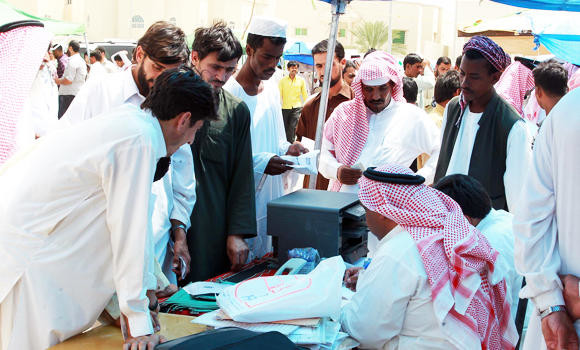Saudi Arabia has launched the third phase of its wage protection system, a vital step aimed at improving transparency and efficiency in labor wage transfers. Scheduled for full implementation in July, this phase is intended to ensure that workers in various sectors receive their salaries on time and in full, thereby minimizing wage-related disputes. The wage protection system, established by the Saudi Ministry of Human Resources and Social Development, seeks to uphold workers’ rights while encouraging fair and timely compensation practices among employers.
This new phase expands the system’s coverage, incorporating additional employers and sectors that were not included in earlier phases. It also introduces stricter monitoring mechanisms to ensure adherence to the system’s guidelines, enhancing accountability for businesses. Workers will gain from this initiative through more secure and reliable payment processes, which will contribute to increased job satisfaction and financial stability. Employers who do not comply with the system’s regulations may face penalties, highlighting the government’s dedication to protecting workers’ welfare.
The rollout of this phase is viewed as a significant advancement in Saudi Arabia’s broader labor reforms, aligning with the nation’s Vision 2030 objectives. The labor market is being modernized to foster a more dynamic and transparent environment, with the wage protection system playing a crucial role in these initiatives. By ensuring timely and fair salary payments, the government aims to build greater trust between employers and employees while addressing the concerns of workers, especially in sectors with a high number of foreign laborers.
This change is anticipated to have a substantial impact on both businesses and workers, reinforcing the foundation of labor rights in Saudi Arabia. As the country progresses in its development, initiatives like this wage protection system are essential.









